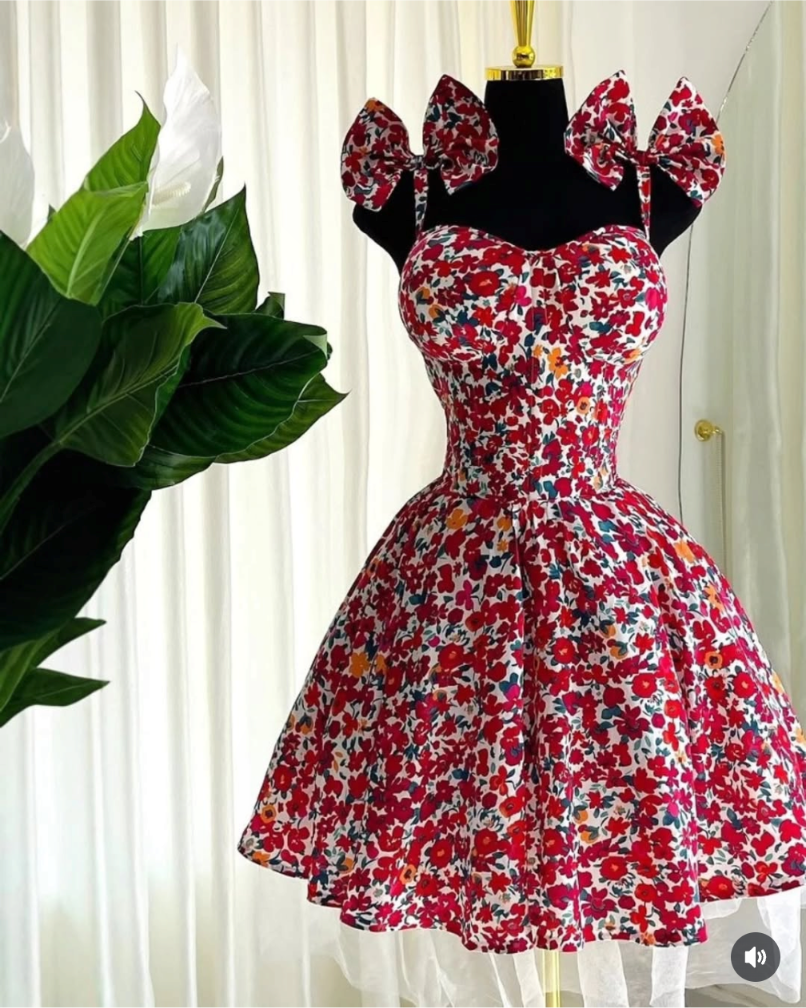HAIR-SENTA-MENTALITY
Health & Wellbeing | Culture | Fashion | Lifestyle
An Online Digital Newsletter & Lifestyle Magazine
EXCLUSIVE FEATURE – COMING FRIDAY, MAY 16, 2025 | 10:30 AM
KILLER IN THE LOAF
How White Bread Fuels Ghana’s Diabetes Epidemic
A Bold Call to Re-think Ghana’s Diet
Featuring: OWUSUAA GYIMAH-ADDO
CEO & Founder of Hair-Senta & HIBS-AFRICA | Author of Direction
Entrepreneur | Motivational Speaker | Wellness Advocate
SPECIAL DIALOGUE
Beyond the Sugar
A Powerful Conversation with
BERLA MUNDI
Award-Winning Broadcaster & Media Personality
INSIDE THIS ISSUE:
- Current Affairs & Health Trends
- The Legacy of Jewellery & Fashion in Ghana
- Cultural Portraits & Local Histories
- Background Insights: Diet, Diabetes & Change
- The Hair-Senta Brand: Beauty, Business & Mentality
INTERNATIONAL READERS WELCOME
Discover the heartbeat of a movement.
From Ghana to the world, we tell stories that heal, empower, and transform.
Subscribe Now | www.hairsenta.com
Follow Us: @hairsenta | #HairSentaMentality #KillerInTheLoaf #BeyondTheSugar











https://www.instagram.com/hairsenta?igsh=MXAzOThhNGZ0Nm15dQ==
Something Luxurious is Coming to Life…
From the heart of Ghana to the world, elegance begins at the roots.
Welcome to Hair Senta — where every strand tells a story of beauty, confidence, and authenticity. ✨
Whether you’re in Paris, New York, London, Lagos, or Accra, the world’s best 100% human hair extensions are just a call—or click—away.
We’re not just a brand. We’re a trademarked promise of quality, trusted by women who know the difference.
Why settle for anything less than Hair Senta?
Because you deserve hair that moves with grace, blends with ease, and lasts like a legacy.
Luxury. Longevity. Lavish beauty.
Shop now from anywhere in the world:
www.hairsenta.com
Call us: (+233) 0544354455 / 0248629769
Visit: 24 Jungle Avenue, Accra, Ghana 00233
Hair Senta — Feel the difference. Own the beauty.
#HairSenta #FromGhanaToTheWorld #LuxuryHairExtensions #HumanHairExcellence #HairGoals #ShopHairSenta #TrademarkedLuxury

Redefining: “Dialogue Has the Power to Shape a New Age”
At Hair Senta, true progress begins with meaningful conversations. More than just a salon, Hair Senta is a space where dialogue fuels transformation, both in appearance and self-expression. By fostering open communication with clients, Hair Senta ensures that every individual’s unique hair desires are understood and fulfilled.
This unwavering commitment to client-centred dialogue has positioned Hair Senta at the forefront of modern trends. The brand doesn’t just follow beauty standards—it shapes them through a philosophy of trust, wisdom, and empowerment. Every client interaction is an opportunity to build confidence and strengthen identity.
Ms.Nana Owusuaa Gyimah-Addo: A Trailblazer in Entrepreneurship and Coaching
A distinguished entrepreneur, CEO and Founder of Hair-Senta and HIBS-AFRICA, Motivational speaker, coach, and author of Direction, Ms.Owusuaa Gyimah-Addo is a visionary leader shaping the future of business through meaningful connections. After earning her business degree, she took a bold step—dedicating a sabbatical year to full-time coaching and business development. Today, her expertise continues to inspire a new generation of entrepreneurs.

Her philosophy? True success isn’t built on profit alone but on relationships, dialogue, and shared wisdom. She believes that businesses thrive when they create spaces of intimacy, understanding, and trust, whether in the workplace, within friendships, or through client relationships.
This belief aligns perfectly with Nichiren Daishonin’s approach, where every human being is valued as part of a shared journey of peace, self-discovery and beauty.
Killer in the Loaf: How White Bread Fuels Ghana’s Diabetes Epidemic
It’s always inspiring when powerful voices rise to confront urgent challenges. Ms. Owusuaa Gyimah-Addo—CEO and Founder of Hair-Senta & HIBS-AFRICA, author of the transformative book Direction, and a celebrated motivational speaker—is one such voice. Having helped countless Ghanaians open businesses and believe in their potential, she now turns her focus to a far more silent but equally dangerous threat: the diabetes epidemic in Ghana, driven in part by poor dietary habits, particularly the overconsumption of white bread.

In Ghana, the consequences are devastating. Thousands suffer from high blood sugar complications that lead to preventable amputations, robbing lives of dignity and families of stability. My advocacy is not just about changing what we eat; it’s about changing how we live—with purpose, discipline, and compassion.
My call to action resonate deeply with the timeless wisdom of SGI President Daisaku Ikeda, who reminds us:
“It is the heart that is important.”
“Appreciation and joy multiply our good fortune. Complaints and negativity erase it”.
This crisis, while physical, is also deeply spiritual. It challenges the heart of the nation—how we value health, how we view food, and how we support one another in times of crisis.
The battle against diabetes in Ghana is not just about medicine.
It’s about mindset.
It’s about community.
It’s about rising with joy and appreciation, facing our challenges not with despair, but with the determined spirit to transform poison into medicine.
As Owusuaa Gyimah-Addo and voices like Berla-Mundi spark bold conversations across platforms, this isn’t just a newsletter feature. It’s a movement.


Killer in the Loaf will shake your perceptions, open your eyes, and maybe even save a life, starting with your own.

Owusuaa Gyimah-Addo:
“With Ghana’s diabetes population steadily increasing, it is crucial that the nation invests in advanced, localised research and study of diabetes, with the ultimate goal of contributing to better human health outcomes and economic growth.”
“A thriving and healthy population is the foundation of any prosperous economy. If Ghana can lead the way in understanding, preventing, and managing diabetes within its own context, the ripple effect will be immense—saving lives, reducing amputations, and boosting productivity.”
“Unfortunately, the rising number of diabetes cases also reveals a troubling gap in our healthcare strategy. It highlights a need for Ghana to adopt a stronger stance—sponsoring academic conferences, funding medical research, and taking bold steps to meet its public health and social responsibilities more effectively.”
“We cannot afford to treat this epidemic lightly. Ghana must act with urgency, compassion, and innovation if we are to protect our people and our future.”
The experiences of people with diabetes-related lower limb amputation at the Komfo-Anokye-Teaching Hospital (KATH) in Ghana
Lower limb amputation not only causes major disfigurement but also renders people less mobile and at risk of loss of independence. Yet with appropriate rehabilitation, many people can learn to walk or function again and live high-quality lives. This study sought to explore the experiences of patients with diabetes-related lower limb amputation at the Komfo-Anokye Teaching Hospital. An exploratory study design was adopted using a qualitative approach and a purposive sampling to select 10 participants for the study. A semi-structured interview guide was used with an in-depth face-to-face interview. The interview was tape-recorded with an audio recorder, while notes were taken in addition to the audio recording.
The study was conducted at Komfo Anokye Teaching Hospital (KATH) in Kumasi, Ashanti region, Ghana. It is the second largest hospital in Ghana and the only tertiary health institution in the Ashanti region. The hospital has a child health, diagnostic, pharmacy, physiotherapy, oncology, polyclinics and diabetes units.
An exploratory study was conducted to serve as a springboard upon which further studies could be conducted, and a qualitative research approach was used. Patients were selected if they had been amputated at the foot (including toes or partial foot); at the ankle (ankle disarticulation); below the knee (transtibial); at the knee (knee disarticulation); above the knee (trans femoral), and at the hip (hip disarticulation). Data were collected between December 2016 and March 2017.
Patients were selected if they were between the ages of 25–70 years (most patients or cases for non-traumatic amputation fell between this age range), spoke English, Fante and Twi (the languages the investigators could speak), and were present at the hospital at the time of data collection. Patients were excluded if they could not speak Twi, Fante or English; could not give their consent to be part of the study; had traumatic amputation and were under 25 years or above 70 years.
What Is Causing the Rise in Diabetes in Ghana?
One of the leading factors behind the growing burden of type 2 diabetes in Ghana is dietary habits. Traditional Ghanaian meals have increasingly incorporated foods that are high in sugar and refined carbohydrates, which significantly raise the risk of developing diabetes.

A common example is white bread, made from refined white flour that lacks essential nutrients and fibre. Other popular items such as Hausa koko with sugar, gari soakings with sugar, and even alcoholic drinks like apeteshi mixed with sugary additives contribute heavily to daily sugar intake.
The shift from natural, whole foods to highly processed, calorie-dense meals has led to increased abdominal obesity—a major risk factor for insulin resistance and, ultimately, type 2 diabetes.
As dietary patterns continue to evolve, so too does the health crisis. Tackling this issue requires urgent public health education and a return to balanced, nutrient-rich diets that support long-term wellness.
Is White Bread Bad for Perimenopause

Yes, white bread is generally considered bad for perimenopause due to its potential to symptoms and negatively impact overall health.
Nutritional Profile of White Bread
White bread is made from refined flour, which means it lacks the bran and germ found in whole grains. This refining process strips away many essential nutrients, including fibre, vitamins, and minerals, leaving white bread nutritionally poor compared to whole grain alternatives.
Impact on Blood Sugar Levels
One of the primary concerns with consuming white bread during perimenopause is its high glycaemic index (GI). Foods with a high GI cause rapid spikes in blood sugar levels, leading to increased insulin production. For women in perimenopause, stable blood sugar levels are crucial as fluctuations can worsen symptoms such as mood swings, fatigue, and hot flashes.
Contribution to Weight Gain
White bread is also linked to weight gain, another significant concern during perimenopause. The refined carbohydrates in white bread are quickly converted to sugar and stored as fat if not used for energy. Maintaining a healthy weight is particularly important during perimenopause, as excess weight can exacerbate symptoms and increase the risk of chronic diseases such as diabetes and cardiovascular issues.
Lack of Essential Nutrients
The lack of fibre in white bread can lead to digestive issues, such as constipation, which is a common problem during perimenopause. Additionally, fibre is essential for maintaining a healthy gut microbiome, which plays a crucial role in hormone regulation and overall health.
Better Alternatives to White Bread
For women in perimenopause, it’s advisable to choose whole grain bread over white bread. Whole grain options provide more fibre, vitamins, and minerals, and have a lower glycaemic index, which helps maintain stable blood sugar levels and supports overall health.
What Kind of Diabetes Management Do Ghanaians Need?
In Ghana, early detection and effective management of diabetes remain major challenges. Type 2 diabetes often develops silently, showing no symptoms in its early stages. As a result, many people delay regular health checkups, and the condition is typically diagnosed only in middle age, often after complications, such as amputation, have already begun to develop.
Alarmingly, the disease is now affecting younger populations at a growing rate. In these cases, the condition often progresses rapidly, yet treatment remains insufficient or delayed. This puts a significant strain not only on individuals but on the national healthcare system.
Additionally, many Ghanaians with diabetes also suffer from other underlying health conditions, which can make management even more complex. One serious complication is severe hypoglycemia (low blood sugar), which can impair cognitive function and increase the risk of heart-related events.
To address this, Ghana urgently needs a comprehensive national diabetes strategy that focuses on:
- Public awareness and education
- Routine screening and early diagnosis
- Access to quality care and medications
- Lifestyle support (nutrition, exercise, mental health)
- Community-based interventions and follow-up care
Without this, the diabetes burden will continue to rise, causing preventable suffering and economic loss.
Orthopaedic Training Centre (OTC) – Ghana
Restoring Mobility, Rebuilding Lives
Welcome to OTC
The Orthopaedic Training Centre (OTC) is a non-profit organisation in Ghana, dedicated to empowering individuals with physical disabilities, particularly children, to lead independent, productive lives.
Our Origins
Founded in 1961 by the Divine Word Missionaries and established by Brother Tarcisius de Ruyter (SVD), the OTC’s primary mission is the rehabilitation of the physically challenged in Ghana and across West Africa.
Where We Are
The Centre is located in Nsawam, about 40 km from Accra, Ghana’s capital. It comprises:
- An orthopaedic clinic and workshop
- A children’s rehabilitation department
- A training college for prosthetics and orthopaedics
- A mobile orthopaedic unit that travels across Ghana to support individuals who cannot visit the Centre
Our Impact
Each year, the OTC helps over 6,000 individuals, most of them children, either on-site or through its mobile unit. With a dedicated staff of 68 full-time professionals, OTC is a place of hope, healing, and opportunity for Ghana’s physically challenged population.
We are deeply grateful to the individuals, organisations, and foundations that support our mission, ensuring that children receive the care they need to grow into capable, confident members of society.
A Call to Action: Addressing Ghana’s Diabetes Crisis
Despite the success stories at OTC, Ghana is facing a rising tide of diabetes, often resulting in preventable amputations. Unfortunately, the country has not adequately prioritised diabetes prevention, missing opportunities to educate the public and intervene early.
Strategies to Improve the Current Situation
To reduce the growing burden of diabetes and its complications, we must act now:
- Regular screening for high-risk individuals
- Nationwide awareness campaigns on diet and lifestyle
- Public exhibitions and outreach to highlight the dangers of uncontrolled blood sugar
- Government-backed initiatives to promote healthy living from schools to workplaces
A Compassionate Future: Led by Heart and Action
As Ghana faces the dual challenges of rising physical disabilities and chronic illnesses like diabetes, it becomes clear that true progress must be rooted in both science and spirit.

Owusuaa Gyimah-Addo, CEO of Hair-Senta and HIBS-AFRICA, echoes a vision of national healing that goes beyond medicine. She reminds us that our response must be grounded in compassion, awareness, and collective responsibility—especially when it comes to shaping our diets, protecting our youth, and supporting institutions like OTC that serve the most vulnerable.
As President Daisaku Ikeda so powerfully states:
“It is the heart that is important.”
Appreciation and joy multiply our good fortune.
Complaints and negativity erase it.
Human beings are weak and easily susceptible to complaint, resentment, envy, and discouragement.
But this is where those who live with a deeper mission—like those leading the fight for health and dignity—must rise.
Through sincere efforts to help others and elevate public consciousness, we cultivate not only wellness but lasting value in our communities.
With heart, unity, and vision, Ghana can move from crisis to compassion—from survival to true empowerment.
Beyond the Sugar A Powerful Dialogue with BERLA-MUNDI Award-Winning Broadcaster & Media Personality and Owusuaa Gyimah-Addo CEO and Founder of Hair-Senta HIBS-AFRICA.


Berla Mundi:
Good day, cherished viewers and readers. My name is Berla Mundi, a journalist and broadcaster committed to using my platform to address some of the most pressing health and social issues affecting our society. Today, we delve into a serious health crisis that continues to quietly claim lives and limbs—diabetes-related lower limb amputations in Ghana.
Joining me is a remarkable Ghanaian woman, business leader, and humanitarian, Nana Owusuaa Gyimah-Addo. She is the CEO of Hair Senta and founder of HIBS-Africa, but beyond business, she is a powerful advocate for public health awareness and compassionate community development. Nana, it’s truly an honour to have you here.

Nana Owusuaa Gyimah-Addo:
Thank you so much, Berla, for such a warm introduction. I am truly humbled and grateful to be here today. It’s always encouraging when platforms like yours create the space for critical discussions, especially about health challenges that affect the everyday Ghanaian. Diabetes and its consequences, particularly amputations, have long been overlooked, and I welcome this opportunity to speak openly about the realities and solutions.

Berla Mundi:
Welcome again, Nana Owusuaa. Let me first ask you this, as Ghanaians are reading:
It is said in your article that diabetes-related lower limb amputations (LLAS) are a significant health concern in Ghana. Studies indicate a high incidence of such amputations among diabetic patients, primarily due to complications like foot ulcers, peripheral neuropathy, and vascular disease. The risk of lower extremity amputation is estimated to be 15 to 40 times higher in people with diabetes compared to those without.
And there hasn’t been adequate effort to address this issue, including the introduction of podiatric care services aimed at early detection and management of foot complications. There’s still limited access to specialised care and a lack of awareness about proper foot care among diabetic patients. Ghana News Agency reports that for individuals living with diabetes in Ghana, it’s crucial to engage in regular foot examinations, maintain proper hygiene, and seek prompt medical attention for any foot-related issues to reduce the risk of complications leading to amputation.
What are your thoughts on this?

Nana Owusuaa Gyimah-Addo:
Thank you, Berla. That question touches on a deeply painful reality. Yes, the statistics are alarming, and what’s even more troubling is how silently this crisis is growing. In Ghana, we’re seeing far too many people, some as young as 30, losing limbs to diabetes-related complications that, with early intervention, could have been prevented.
The lack of podiatric services in our healthcare system is a gaping hole. Proper foot care, early detection of ulcers, and access to trained foot specialists are essential in preventing amputations. Yet, in most parts of Ghana, these services simply don’t exist or are not accessible to the average person.
Let’s take the Komfo Anokye Teaching Hospital study as an example. It was humbling but heartbreaking to read about the experiences of patients who had undergone amputations. Many of them were in the 25–70 age range—people in their most productive years. The study gave them a voice: patients shared how losing a limb not only caused emotional and physical pain, but took away their mobility, independence, and, for some, even their sense of dignity.
And while it’s true that with proper rehabilitation, some patients can learn to walk again or live fulfilling lives, we must ask—how many actually have access to such care? How many live in rural areas where even basic wound dressing is hard to find?

Berla Mundi:
That’s such a critical point. And it’s not just about treating diabetes—it’s about the entire system of support around the patient.

Nana Owusuaa Gyimah-Addo:
Exactly, Berla. And let’s not forget that diabetes itself is increasing rapidly in Ghana, especially Type 2 diabetes, largely due to our changing dietary habits. We’ve moved from whole, natural foods to highly processed, sugar-laden meals. Foods like sugary Hausa koko, white bread, and gari soaked with sugar have become daily staples, and yet we’re unaware of the long-term consequences.
But beyond food, we also have a serious gap in public education. Many people don’t know they have diabetes until it’s too late. They seek care when a wound won’t heal or when numbness sets in—and by then, the damage is often advanced. We don’t have a culture of routine screening, and people fear hospitals because of the cost or stigma.

Berla Mundi:
So, what kind of diabetes management system do you believe Ghana truly needs?

Nana Owusuaa Gyimah-Addo:
We need a national diabetes strategy—and we need it urgently. One that doesn’t just treat, but prevents. This means:
- Nationwide awareness campaigns in schools, churches, and markets.
- Routine screening in communities, especially for those over 30.
- Access to quality medications and nutritional counselling at every district hospital.
- Training more healthcare professionals, especially in podiatric and diabetes-related care.
- And finally, supporting institutions like the Orthopaedic Training Centre (OTC) in Nsawam. They are restoring lives, building prosthetics, and giving hope—but they cannot do it alone.
We must look at this not only as a medical issue, but as a human issue—an issue of dignity, access, and compassion. We need to fight this together—government, private sector, media, faith-based organisations, and civil society.

Berla Mundi:
Nana, I’m moved by everything you’ve shared so far. But I want us to shine a light on an often overlooked reality—the people in our rural communities. Many of them, both young and old, live in poverty. They don’t have the money to pay for regular checkups, let alone specialist care or long-term treatment for a chronic condition like diabetes. And sadly, there doesn’t seem to be any strong government policy or reform that helps these individuals access affordable healthcare.
In your opinion, how do we begin to bridge this gap?

Nana Owusuaa Gyimah-Addo:
Berla, you’ve hit the heart of the matter. We cannot talk about diabetes management in Ghana without addressing the painful truth: poverty is a barrier to survival.
In rural communities, where people struggle to afford even basic meals, the idea of spending money on regular blood sugar tests or seeing a doctor is often unrealistic. No health insurance truly covers their needs. There’s no mobile clinic coming regularly. So, diabetes remains undiagnosed, untreated, and ultimately devastating.
What’s even more disheartening is the absence of a national policy that directly targets these vulnerable populations. We need reforms that provide free screening, community health education, and subsidised medications. Health shouldn’t be a luxury—it is a human right.
And yet, in the midst of this, Berla, I want to pay tribute to those who saw this need decades ago and acted. In the 1960s, Brother Tarcisius de Ruyter, a missionary with the Divine Word Missionaries, came to Ghana with a vision rooted in compassion. He established the Orthopaedic Training Centre (OTC) in Nsawam, not as a business, but as a haven for the physically challenged.
That centre has since become a sanctuary for amputees, especially children, providing prosthetics, rehabilitation, and hope. It includes an orthopaedic workshop, mobile outreach units, and even a training college. And they do all this as a non-profit. Each year, over 6,000 people, most of them with no financial means, receive help from OTC.
So yes, while the government response has been slow and systems are weak, there are still bright spots—missions, NGOS, and faith-based initiatives—that are stepping in where the state has not.
But they can’t do it alone, Berla. They need partnerships, resources, and most importantly, policy support to scale their impact.

Berla Mundi:
That’s such an important reminder—compassionate leadership and grassroots action can spark real change. Nana, for everyone listening today—whether it’s a policymaker, a young person in the city, or a teacher in a village—what would you say is the one thing they can do today to contribute to ending this crisis?

Nana Owusuaa Gyimah-Addo:
I would say this: start where you are, with what you have.
- If you’re a teacher, talk to your students about healthy eating.
- If you’re a religious leader, host a health screening day at your church or mosque.
- If you’re a business owner, consider sponsoring someone’s treatment or education.
- And if you’re in government, be bold—pass the reforms that prioritise people over politics.
Because Berla, like President Ikeda, said: “It is the heart that is important.” We need to move with empathy, act with courage, and stand together. That’s how Ghana will overcome this crisis—not just with medicine, but with heart.

Berla Mundi:
Nana, thank you. I truly believe this conversation is more than a discussion—it’s a call to action. But before we wrap up, I know you’re deeply inspired by the words of President Daisaku Ikeda, whose humanistic philosophy has moved countless people around the world. You often mention that his message—“It is the heart that is important”—guides your work. Can you share how this encouragement shapes your mission in the face of Ghana’s health challenges?

Nana Owusuaa Gyimah-Addo:
Berla. President Ikeda’s words have anchored me through both personal struggles and my journey as a leader and advocate. When he said:
“It is the heart that is important. Appreciation and joy multiply our good fortune. Complaints and negativity erase it. Human beings are weak and easily susceptible to complaint, resentment, envy, and discouragement. But this is where those who live with a deeper mission must rise.”
—he was speaking not just to philosophers or politicians, but to everyday people like you and me.
I choose this quote because I believe that in every crisis—whether it’s poverty, amputation, disease, or injustice—it is the heart that becomes our compass. When we move from a place of compassion, we can endure and overcome. When we operate with courage, we can transform pain into power.
In Ghana, the diabetes crisis is not just a medical issue. It’s a moral and spiritual challenge. Are we willing to see the humanity in those suffering? Are we willing to act, not because it’s profitable, but because it’s right?
This is the spirit that guides my work—through HIBS-Africa, through our health drives, and in every conversation like this one. I believe that if we educate hearts, if we lead with empathy, then we will not only save lives, we will uplift this nation.

Berla Mundi:
That is profoundly moving, Nana. Truly. Thank you for reminding us that transformation begins not just in policy, but in the human heart—and that each of us, no matter our role, can be a source of healing and hope.
To our readers and listeners: Let us avoid this issue. Let us rise, together. Ghana deserves a future where no child, no mother, no father has to lose a limb—or a life—to preventable illness.
Thank you, Nana Owusuaa Gyimah-Addo, for your voice, vision, and heart.

Nana Owusuaa Gyimah-Addo:
Thank you, Berla. And to every Ghanaian reading—let’s take one step, just one, to be the change our communities need.
SGI-Our Shared Humanity:

Shebybena
Entrepreneur. Credible. Internationally Recognized.
Crafted in Ghana, Worn by the World
✨ Discover a taste of…
Class. Elegance. Luxury. Style. Beauty. Glamour. ✨
With unique silhouettes and detailed craftsmanship,
Shebybena delivers timeless fashion that speaks of heritage, power & global sophistication.
Backed by the brilliant light of Ghana’s own superstar
Joselyn Dumas – the guiding force who illuminated the path to Shebybena’s greatness.
A true icon supporting an icon.
Ready-to-wear & Select Pieces:
@the_shedollemporium
Contact Us:
+233 26 996 3340
enquiries.shebybena@gmail.com
Shebybena – Not just fashion. A statement.
Born in Ghana. Worn with pride. Loved worldwide.
#Shebybena #MadeInGhana #LuxuryFashion #JoselynDumasSupport #GhanaToTheWorld


https://www.instagram.com/goba_kente?igsh=d2Vwd2E2M2VtcTZq

https://www.instagram.com/laurenhautecouture?igsh=MWxzNXN1Ym5nZ3o3Mg==

https://www.instagram.com/ankara.africa?igsh=ZDJmN216Z2ZhbWFm

https://www.instagram.com/nadia_gyimah?igsh=eG5ubml6enJna2Z0
Meet Nadia Gyimah – Digital Creator Extraordinaire!
✨ Creative content is her thing.
Her reels? Pure entertainment!
They’ll make you laugh, think, and leave you wondering… “How does she do it?!”
Follow her for content that’s:
Bold
Fun
Unexpected
& Always Creative
She’s got the magic – come see it for yourself!
@NadiaGyimah
#DigitalCreator #CreativeQueen #ReelMagic
Watch. Think. Smile. Repeat.
🔥 Let’s go viral! 🔥


https://www.instagram.com/officeandcobysa?igsh=dmxucTZ2a2t1eDBn


https://www.instagram.com/addictyourtrendycloset?igsh=dXpnbjZiMnludjJ2



https://www.instagram.com/sima_brew?igsh=MWpvcjZhZ2ExNXVrNQ==

https://www.instagram.com/oh_my_hairr?igsh=MThqbDNneDZzcTF3cw==


https://www.instagram.com/delish_bakerygh?igsh=MW5ic2c0NnR5cHBwZQ==




https://www.instagram.com/valerieoba?igsh=cnB2eWZsaDEyaWR5







https://www.instagram.com/serwaaamihere?igsh=N216N3hzeTE3eHho
Meet Serwaa Amihere
Public Figure | Broadcast Journalist | Entrepreneur
✨ The face of trusted news, now the name behind trusted products!
From the newsroom to your everyday essentials, Serwaa is connecting Ghana to the world – one quality product at a time!
CEO & Co-founder of:
@oh_my_hairr – Luxurious Haircare
@officeandcobysa – Classy Corporate Fashion
@serwaaamiherefoundation – Impact & Empowerment
www.officeandcobysa.com.gh – Your fashion hub
Flora – Organic Diapers & Tissues for gentle care
Sankofa Spices – Authentic Ghanaian Flavor
Tango Soaps – Cleanliness for all
Lois Cosmetics – Beauty, redefined
Serwaa Amihere’s Circle
6,070+ strong – and growing!
Community. Confidence. Class.
As a journalist, she chose to inform Ghanaians with truth.
Now as a CEO, she chooses to serve Ghanaians with the best quality everyday essentials
– because you deserve excellence.
#EverydayEssentialsBySerwaa
#FromNewsToNeeds
#GhanaToTheWorld
#SerwaaAmihere
Follow. Support. Celebrate Greatness.
She’s not just a brand – she’s a movement.
Let’s go, Ghana! Flag, sparkle, heart emojis










